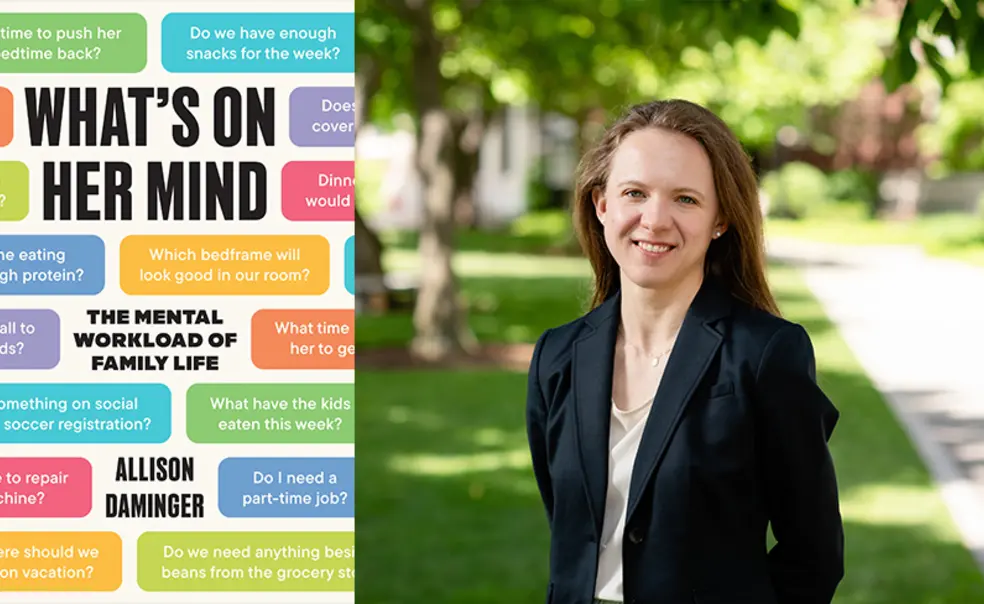Sociologist Allison Daminger ’12 Researched Mental Workload in Family Life
In What’s on Her Mind, Daminger shows women take on the majority of cognitive labor at home
Allison Daminger ’12 is consistently curious, a valuable trait as a sociologist intrigued by what motivates us to do what we do. In 2017, she began to wonder about a key question that snowballed into five years of interviews with couples: Who takes on the cognitive labor in a household and how does that affect their mental health?
More than 170 interviews later, Daminger, a sociology professor at the University of Wisconsin-Madison, has published What’s on Her Mind: The Mental Workload of Family Life, which reveals how women often take on the majority of this unseen work.
Daminger describes cognitive labor as project management for the home. “It’s about figuring out what the family needs, what they owe to others, and then finding a way to ensure that those needs are met and those obligations are fulfilled,” Daminger says.
She cites the example of getting families together for the holidays. “A decision has to be made about if you’re going to your parents’ home or your husband’s parents’ home,” she notes, “and then someone has to think through the possible permutations, make a decision, and then follow up to book the plane tickets.”
Analyzing this form of cognitive labor isn’t entirely new but has shifted over the past few decades. “In my book I talk about an economist who was writing in the 1920s about the head work of the housewife, but this kind of management work has ratcheted up recently as we’ve seen an increase in the how much supervision children need,” she says.
She also points to an age-old imbalance: Women are often held socially accountable for most domestic consequences, like a messy house or a poorly dressed child. Men are more on the hook for a family’s financial outlook. Men and women alike internalize these gender-specific societal expectations.
Cognitive labor leads to consequences women face that she expected but also a fallout she didn’t see coming, says Daminger. “Women endure higher anxiety and burnout, but what I didn’t expect to find was lower political participation related to the level of burden they are carrying at home.”
She says couples who recognize this management overload should start having conversations about how to ease its ripple effects. “My data found that there is intentionality around physical chores, like who’s going to cook or wash the dishes, but there is very low intentionality around the division of cognitive labor,” Daminger notes.
A question she asked all the couples in her research period could mirror what anyone could question themselves: “If I could give you a magic wand right now, how would you reset your division of this work. What is your North Star?”
She points to Princeton anthropology professor João Biehl as an inspiration as she learned to examine social behavior. “I remember being totally floored that the things I took for granted, like illness, could differ by culture,” she recalls, “and it was a lightbulb moment for me to understand how our lives are socially and culturally shaped.”
On the horizon for Daminger is an extensive study on humor in relationships. She says, “In my interviews for the book, I found that partners would make fun of themselves and each other in these gendered ways, and that got me curious on how these jokes could potentially reinforce inequalities in a relationship, or perhaps challenge them.”












No responses yet